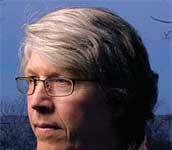 It doesn’t take a rocket scientist to see that free books are popular on the Kindle. Take a look at the Kindle book bestseller list on any given day and you’re likely to find a bunch of zero-priced items. Even as I write this post I see that 14 of the top 25 titles are free.
It doesn’t take a rocket scientist to see that free books are popular on the Kindle. Take a look at the Kindle book bestseller list on any given day and you’re likely to find a bunch of zero-priced items. Even as I write this post I see that 14 of the top 25 titles are free.
“Selling” these free titles is easy and their publishers/authors obviously have something bigger in mind than just giving away content. Many are hoping to be discovered, thereby broadening their audience so that these new fans will actually pay for the next title in the series, for example. Kindle freebies have been around pretty much since day one, but where’s the data to show whether they’re successful or not? Of course, “success” may have multiple definitions here, but still, why isn’t anyone talking about the results?
This recent NY Times article made me wonder even more about this. When I tweeted the same question over the weekend, fellow twitterer @kindleworld mentioned the confidentiality issue. That’s fair, and even though there are ways to describe results without breaking the rules, it would be better if the rules would just go away.How about this solution?: Amazon summarizes the results and shares it with the industry. They don’t have to name specific titles, authors or publishers. They’d just talk about percentage increases after zero-pricing went in effect and also share percentages (and as many other specifics as possible) on the effect this had on the publisher/author’s related titles (up, down, no change).
Why wouldn’t Amazon want to share this information?! They say they want to be the leaders in all things content, so why not take a leadership role here by summarizing and sharing the results? Amazon is a data machine. They’ve got all the numbers and plenty of insightful talent to analyze and write this up.
How about it, Mr. Bezos? Can you have someone do this as a service for the community?
(Btw, it’s interesting that the same scenario isn’t playing out on the Nook. It’s still very early in the Nook’s life but you have to dig pretty hard to find the freebie for it. Several of the publishers/authors of the free Kindle editions aren’t trying the same experiment on the Nook. Heck, some of them don’t even have a Nook edition of the book they’re giving away on the Kindle. Interesting. I flipped through several pages of the Nook’s bestseller list and never did see a free edition. Only by searching for a few specific titles did I come across this one.)
Editor’s note: The above is reprinted, with permission, from Joe Wikert’s Publishing 2020 Blog. PB






























I’d think it’s publishers you’d want to share the info, not Amazon. Seems to be working for Samhain…
http://www.nytimes.com/2010/01/23/books/23kindle.html?pagewanted=2&ref=books
Baen’s had their free library for a decade and it works for them, don’t know why it wouldn’t work the same elsewhere.
I know I’ve bought entire series after reading the first book as a freebie.
For years our publishing house has reduced the price on the first book in a series to encourage sales. This has been relatively successful with physical product.
Recently we did an eBook giveaway for a select group of titles and found that the authors’ other books sold extremely well during and after the giveaway. There was some variation between established authors and new authors, but not enough to be significant. We were also shocked to see that the actual books given away had significant increase in sales after the promotion. It almost doesn’t make sense, but that’s what happened. I won’t reveal any figures, but the increase in units sold before and after the promotion increase was very significant. Such that in the month following the giveaway, a small group of titles related to the giveaway generated nearly as much revenue as our entire eBook line did 7 months earlier.